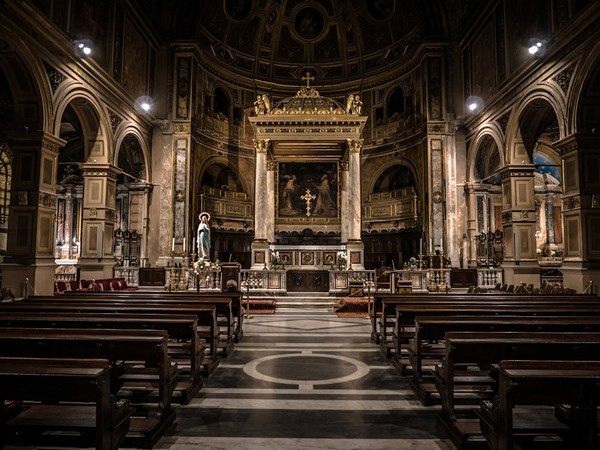Washington DC [US], May 10: As Pope Leo XIV celebrated his first Mass as pontiff at the Sistine Chapel on Friday, he spoke a few words in English. It was a reminder - if anyone needed one - that a baseball fan who hails from Chicago was now leader of the Roman Catholic Church.
For American Catholics, the elevation of Robert Prevost to the papacy was a shock, a cause for celebration and a chance for some fun. After the announcement, social media lit up with memes about Leo eating hotdogs, bringing deep dish pizza to the Vatican and switching out the Popemobile for a pickup truck.
But despite the warm embrace of his countrymen and women, the deeply divided U.S. Catholic Church may ultimately pose some of the most serious challenges for the new pope.
Those divisions, which mirror more generalized political polarization in the U.S., are evident in a host of issues: immigration, same-sex couples, climate change and the role of women in the Church, among other issues.
The split has grown wider in recent years as a growing segment of conservative Catholics becomes increasingly vocal and assertive. Pope Francis - who was seen as more progressive-minded thanks to his views on climate change and migration - saw his popularity decline in the U.S. over time as the conservative influence helped shape opinions: In 2024, about 75% of U.S. Catholics viewed Francis favorably, down from about 90% in 2015, according to a Pew Research Poll.
Cathleen Kaveny, a theology and law professor at Boston College who has closely tracked the split between conservatives and progressives, said the new pontiff could salve some wounds between the sides while deepening others.
Kaveny expects Leo, with his expertise in canon law and administration at the Vatican, to embrace his predecessor's vision of a church dedicated to the poor and open to all, what she described as a "trickle-up theory of paying attention to people and what they think."
If Kaveny proves right, traditionalists and conservatives may balk. "Pope Leo XIV is an institution builder and he will institutionalize Pope Francis' visions - or, at least, certain aspects of them," she said.
Steve Bannon, the conservative strategist and Catholic who advised President Donald Trump during his first term, also expects continuity. "He's an ideological twin to Francis," he said in an interview with Reuters.
PRESIDENT AS POPE
That said, American conservatives may appreciate that the new pontiff will likely show more discretion than Francis, Kaveny said, perhaps shifting focus away from some of the more contentious issues such outreach to the gay and transgender faithful.
In their politics, U.S. Catholics have swung more conservative, with right-wing media and Trump-era culture wars combining as powerful influence within the church. Catholics voted for Trump 59%-39% over Democrat Kamala Harris in the November presidential election, a 12 percentage point swing from 2020, according to exit polling by Edison Research.
Trump, whose cabinet is about one-third Catholic, expressed pride at having an American in charge at the Vatican. An AI-generated image of Trump dressed as pope was posted on a White House social media account last weekend; the president told reporters he had nothing to do with the image.
Despite Trump's welcome, Leo may also find himself in the crosshairs of Trump supporters, some of whom have described him as a globalist, liberal and woke-minded. Leo has a handful of disapproving posts about the Republican leaders' policies on the X account of Robert Prevost. Among the posts are one questioning Trump's migration policies and another reposting an article headlined, "JD Vance is wrong: Jesus doesn't ask us to rank our love for others."
"He's got that same Latin American liberation theology radicalness to him," Bannon said, referring to Leo. "He's virulently anti-Trump."
The share of Americans who describe themselves as Catholic has changed little over the last decade, hovering around 20%, according to Pew Research. During that time, the Church has been rocked by sex abuse scandals that have resulted in costly legal settlements and bankruptcies, while dragging on church attendance and donations.
A number of U.S. dioceses, including in Leo's hometown of Chicago, have been forced to close churches, while others have fallen into disrepair.
Despite Francis' cost-cutting efforts and financial management, the Vatican faces an $94.22 million budget shortfall, two sources have told Reuters, and a much larger funding gap in its pension fund.
'NO PLACE TO GO'
David Gibson, director of the Center on Religion and Culture at Fordham University, said that Leo's ascension cements the movement ignited by Francis to broaden the appeal of the church and make it accessible to more people. At times that has come at the expense of tradition, such as the move by Francis to restrict the celebration of the Latin Mass, which enraged his conservative critics.
"The conservatives have no place to go. Leo is 69 and could be around for 15 to 20 years," Gibson said. "This is the church now - finding how to preach the Gospel in modern times. The conservatives will have to figure out how they're going to live in that church."
Still, Leo is an American, and experts said it remained to be seen how the novelty of the first U.S.-born pope - and his understanding of U.S. Catholics - could play out.
"There's a certain kind of opportunity he has in this moment to appeal and to be a symbol that can unite and that could go a way in pulling us together," said Nancy Pineda-Madrid, associate professor of theology at Boston College.
"I think in many ways he can stretch us here in the United States in ways that are wonderful and rich," she said.
Source: Fijian Broadcasting Corporation

